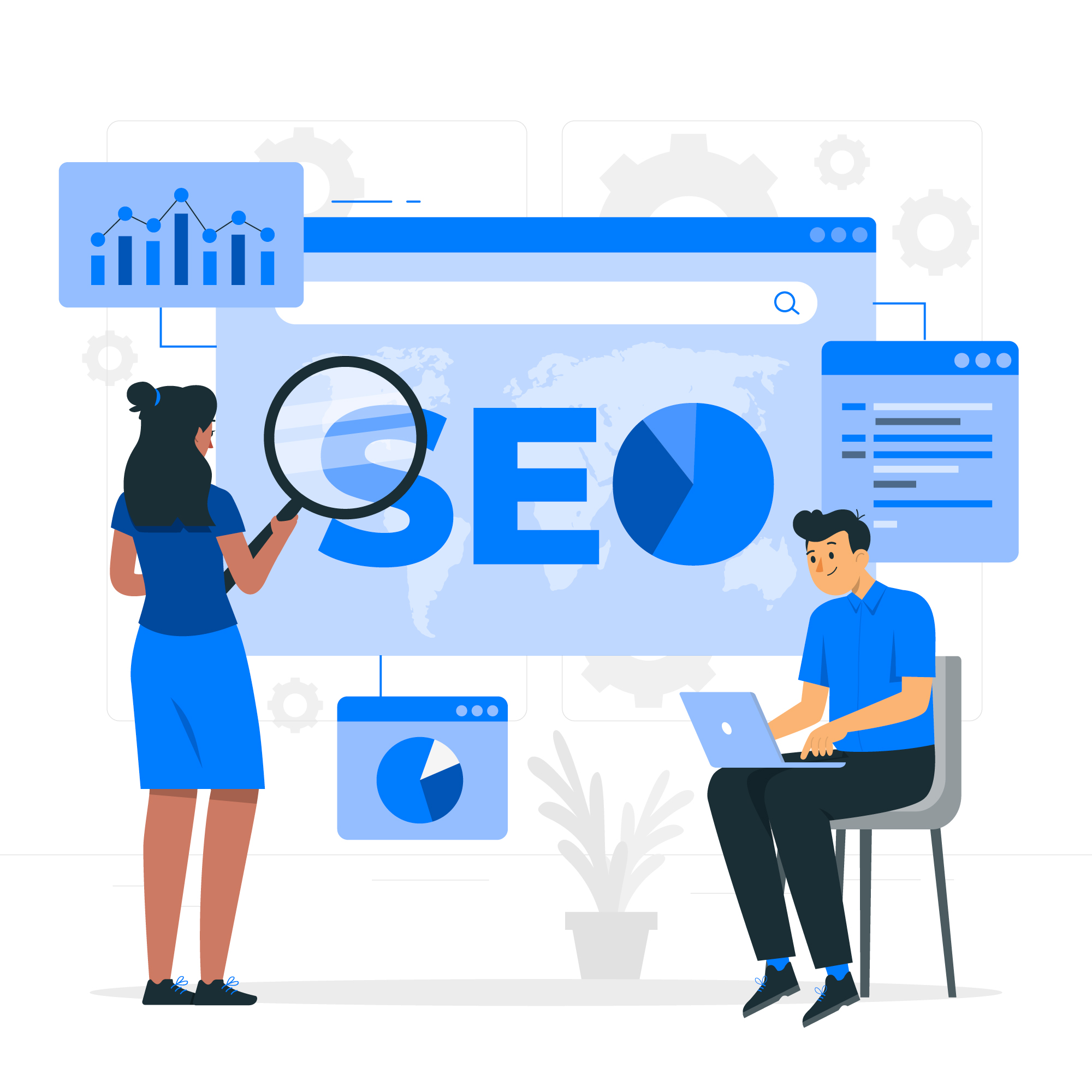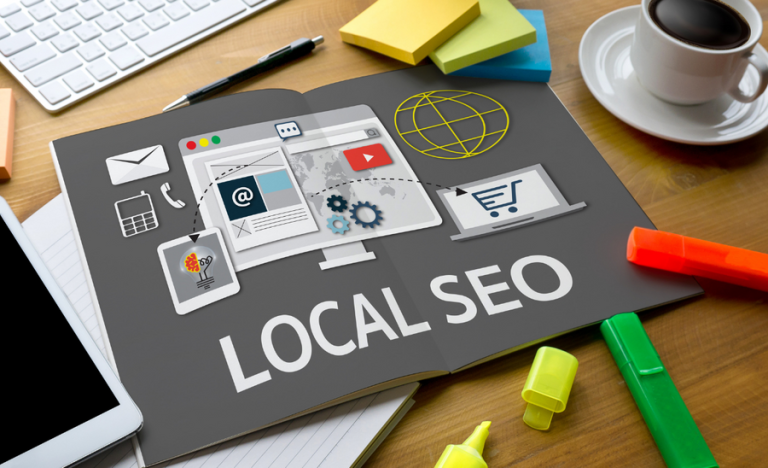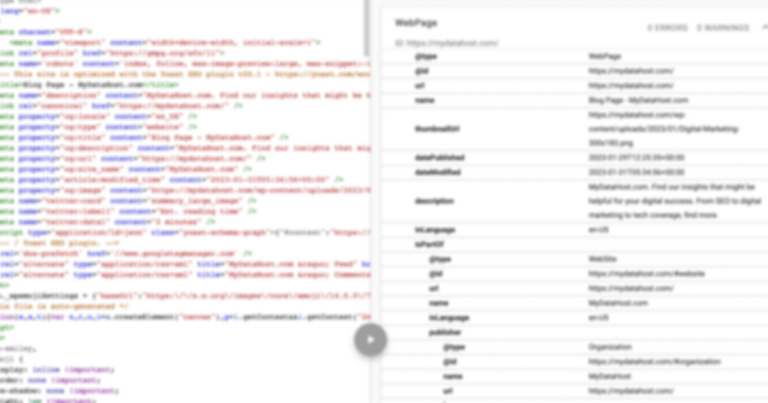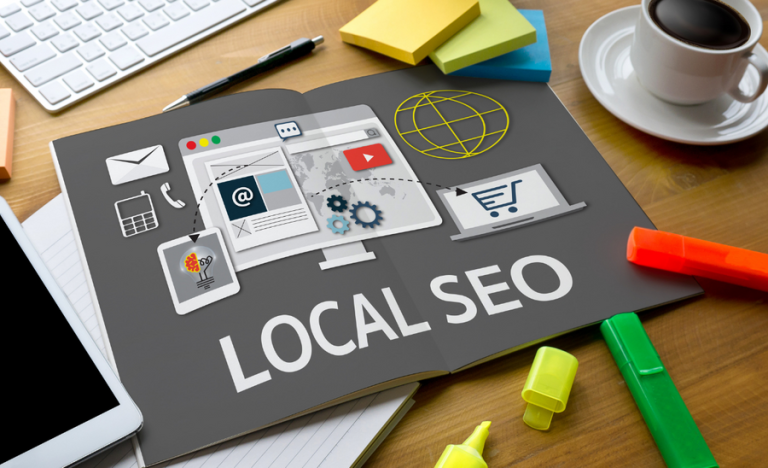Search Engine Optimization (SEO) is an important aspect of website development, and if you are using WordPress, there are several ways to optimize your site for search engines. In this article, we’ll provide a complete SEO guide for your WordPress website, including tips and best practices for optimizing your site’s content, structure, and technical aspects.
Keyword Research
The first step in optimizing your WordPress site for search engines is to conduct keyword research. This involves identifying the keywords and phrases that your target audience is searching for, and including them in your site’s content, meta tags, and other elements.
There are several tools available for keyword research, including Google’s Keyword Planner and SEMrush. These tools allow you to see the search volume, competition, and other metrics for specific keywords.
Once you’ve identified your target keywords, you should incorporate them into your site’s content, meta tags, and other elements in a natural and relevant way. Don’t stuff your keywords into your content or meta tags, as this can actually hurt your SEO.
On-Page Optimization
On-page optimization refers to the techniques used to optimize individual web pages in order to rank higher and earn more relevant traffic in search engines. WordPress, being the most popular Content Management System (CMS) in the world, has several plugins that can help you with on-page optimization.
Title tags and meta descriptions
Title tags and meta descriptions are HTML tags that provide information about your web page to search engines. The title tag is the text that appears in the search engine results as the title of your page, while the meta description is the brief summary of your page’s content that appears below the title.
The Yoast SEO plugin is one of the most popular WordPress plugins for optimizing title tags and meta descriptions. It allows you to easily edit and preview your title tags and meta descriptions, as well as providing suggestions for improvement.
URLs
Search engines also use the structure of your URLs to understand the structure of your site and the pages it contains. A clear, simple URL structure can help search engines understand your site’s content, and it can also make it easier for users to navigate your site.
WordPress automatically creates URLs based on the titles of your pages and posts, but you can also customize them. For example, you can use a plugin like Permalinks Customizer to change the structure of your URLs.
Headings
Headings are an important part of on-page optimization, as they help search engines understand the structure and hierarchy of your content. WordPress automatically creates headings for your pages and posts, but you can also customize them.
The Yoast SEO plugin also allows you to easily edit and optimize your headings, and it provides suggestions for improvement.
Content Optimization
Creating high-quality, relevant, and engaging content is crucial for SEO. Search engines use the content on your site to understand what your site is about and to determine its relevance to specific search queries.
When creating content, it’s important to keep your target keywords in mind and to use them in a natural and relevant way. Additionally, you should aim to create long-form content, as search engines tend to favor longer articles and blog posts.
Internal Linking
Internal linking is the process of linking to other pages on your own website. This helps search engines understand the structure of your site and it helps users navigate your site.
WordPress makes it easy to add internal links to your content, and there are also plugins that can help you manage your internal links. For example, the SEO Smart Links plugin allows you to automatically link keywords to specific pages on your site.
Technical SEO for WordPress
In addition to on-page optimization, there are several technical aspects of SEO that you should consider when developing your WordPress site.
Site Speed
Site speed is an important factor in SEO, as it can affect both the user experience and search engine rankings. Slow-loading pages can lead to high bounce rates and low engagement, which can negatively impact your search engine rankings.
There are several ways to improve your WordPress site’s speed, including using a caching plugin, optimizing images, and reducing the number of plugins you use. The WP Fastest Cache and W3 Total Cache plugins are popular options for caching.
Mobile Optimization
Mobile optimization is also an important factor in SEO, as more and more users are accessing the internet on their mobile devices. Google has stated that mobile-first indexing is used for over half of all web pages, which means that the mobile version of your site is used to index your site and determine its rankings.
WordPress themes are responsive by default, which means that they adjust to the size of the screen they are being viewed on. However, you should still test your site to ensure that it looks good and works well on mobile devices.
XML Sitemaps
XML sitemaps are a way to tell search engines about the pages on your site that they should crawl. This can help search engines find and index your pages more quickly and efficiently.
WordPress automatically generates a sitemap for your site, but you can also use a plugin like Yoast SEO to create and submit your sitemap to search engines.
SSL Certification
Search engines also consider security when ranking sites. An SSL certificate encrypts the data transmitted to and from your site, which can help protect sensitive information and improve user trust.
You can purchase an SSL certificate from a variety of providers, and there are also some hosting services that provide SSL certification for free. Once you have an SSL certificate, you’ll need to install it on your WordPress site.
Conclusion: SEO for WordPress Site
SEO can be a complex and ever-changing process, but by following the tips and best practices outlined in this guide, you can improve your WordPress site’s search engine rankings and drive more relevant traffic to your site. Remember to regularly check your site’s analytics and adjust your strategy accordingly. Keep in mind that SEO is not a one-time task but rather a continuous process, and keeping your site optimized will improve its performance over time.











My relatives always say that I am killing my time here at web, but I know I am getting experience every day by reading such fastidious articles or reviews.
Hello. And Bye.